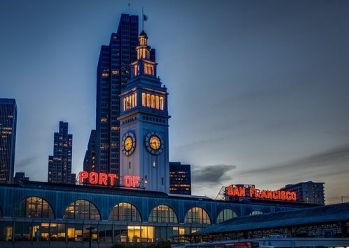FDA Launches New Filer Evaluation Process
Courtesy: NCBFAA FDA Launches New Filer Evaluation Process
In a letter to former NCBFAA President Geoff Powell, the Food and Drug Administration (FDA) announced that it has now completed its procedure for revamping the Filer Review process. According to FDA, the new process is now in effect nationally and is the method that will be used for conducting all filer evaluations. Here is a copy of the procedure along with a flow chart of the process and a chart giving examples of how FDA will determine the severity of data transmission errors during a review.
The changes in the filer review procedure evolved over the past nine years, with the close involvement of NCBFAA's Regulatory Affairs Committee (RAC). The process was painstakingly slow. Yet, the agency listened. They significantly revised earlier proposals due to NCBFAA input. The new process is more transparent. For the first time, FDA evaluators must differentiate between minor errors and substantive errors. The new guidelines also recognize the difference between filer errors and importer errors - a critical distinction that was previously lacking.
Before launching the new guidelines, the FDA asked NCBFAA members to participate in a pilot to test and evaluate the new process, allowing the agency to receive feedback from the participating entry filers and the FDA evaluators.
NCBFAA's work is not done. We continue to press FDA to develop a more reliable process for determining product codes and to allow an optional company-wide review for brokers who prefer that approach. And, as the process is implemented nationwide, trouble spots will no doubt occur, requiring continued communication with the agency to improve the process. NCBFAA and the RAC committee welcome your input as you experience the new filer review process.
Substantially Transformed or Not, That Is the Question: Understanding U.S. Origin Rules in Uncertain Times
Courtesy: Tuttle Law Offices Until the Trump administration’s war on trade, many companies did not consider country of origin to be of critical importance to their import process. Certainly, country of origin questions were, and remain, important for determining whether goods are subject to import restraints (quotas) or for qualification under various free trade agreements and special duty programs such as 9801 or 9802; and it is of critical importance when we consider whether certain goods and materials are subject to Antidumping or Countervailing duties, but, for much of the goods that are imported, it was a non-issue. But no longer. Under the Trump administration’s war on trade, we must now contend with and consider whether the goods we import are subject to additional duties under Section 201, 232 and the overwhelming impact of section 301 duties on goods from China. Companies are asking about whether they can shift their supply chain to take advantage of more favorable countries, and if so, how far down the supply chain the shift must occur.
Whose Responsibility is It to Determine Country of Origin?
Section 484 of the Tariff Act, as amended (19 U.S.C. § 1484), obligates an importer of record (IOR) to use reasonable care when entering or classifying imported merchandise, assessing duties, reporting accurate trade statistics and determining whether any other applicable legal requirement has been met. Determining and reporting the origin of imported goods falls within the scope of section 1484, both for purposes of duty preference claims as well as complying with basic entry requirements for reporting the correct country of origin of imported merchandise. (CBP Form 7501 "Entry Summary" Instructions: Detailed instructions on completing CBP Form 7501. https://www.cbp.gov/trade/programs-administration/entry-summary/cbp-form-7501) False statements with respect to origin can result in the assessment of penalties under 19 U.S.C. §1592. Additionally, errors made with respect to the country of origin can result in the loss of special duty privileges, detention or exclusion of goods at the time of admission, or a demand for redelivery of the articles to Customs custody. Articles that are not timely returned to Customs custody are subject to liquidated damages equal to the value of the unreturned articles. Goods that are improperly marked or not marked in accordance with the country of origin marking statute (19 U.S.C. § 1304) can also be assessed a special “marking duty” equal to 10 percent of the value of the mis-marked goods.
In United States v. Golden Ship Trading Company, 25 C.I.T. 40 (2001) the government sued an importer of t-shirts from the Dominican Republic, claiming that the true country of origin of the t-shirts was China and not the Dominican Republic as reported. The government sought a monetary penalty for negligence. The importer argued that it was not negligent in misrepresenting the origin of the t-shirts because she relied on the information provided by the exporter and accepted his representations that the Dominican Republic was the country of origin of the t-shirts. The court, however, determined that the importer, Ms. Wu, failed to exercise reasonable care because she failed to verify the information contained in the entry documents related to country of origin. The court explained that under the definition of reasonable care, Ms. Wu had the responsibility to at least undertake an effort to verify the information on the entry documents. The court said that there is a distinct difference between legitimately attempting to verify the entry information and blindly relying on the exporter’s assertions. Had Ms. Wu inquired as to the origin of the imported t-shirts or, at minimum, attempted to check the credentials and business operations of the exporter, she could make an argument that she attempted to exercise reasonable care and competence to ensure that the statements on the entry documents were accurate, but she had not. The court found that Ms. Wu’s failure to attempt to verify the entry document information shows she did not act with reasonable care, and had, therefore, attempted to negligently introduce merchandise into the commerce of the United States in violation of 19 U.S.C.§ 1592 (a)(1)(A). Because of this, she was required to pay a civil penalty for her negligence.
To read article in its entirety, click here.
PierPass 2.0: What You Need to Know
PierPass 2.0: What You Need to Know
On Nov 19, the PierPass OffPeak Program Will Change
The current congestion-pricing model, with a Traffic Mitigation Fee (TMF) charged on daytime moves, will be replaced with an appointment-based system that uses a single flat fee on both daytime and nighttime container moves.
Appointments Required for All Import Container Pickups
Beginning Nov. 19, all marine container terminals at the Ports of Los Angeles and Long Beach will require appointments.
Appointments are to be made through the terminal systems, not through PierPass. Terminal appointment system information is at http://wcmtoa.org/appointment-systems/.
Flat TMF Across All Hours
The TMF previously charged only on Peak (weekday daytime) cargo moves will be replaced by a reduced fee that is constant across all hours and days of operation.
TMF Reduced
Beginning Nov 19, the TMF will be $31.52 per TEU (twenty-foot container).
The TMF for all other size containers will be $63.04.
No Change in Type of Containers Subject to TMF
There is no change in the types of cargo will pay the TMF. The following moves will remain exempt from the TMF:
- Empty containers
- Rail intermodal containers
- Transshipped containers (cargo that arrives at the Port of Los Angeles or Long Beach on one vessel and leaves on a second vessel without entering U.S. commerce)
- Domestic cargo
- Bare chassis
Common Two-Hour Appointment Windows and Last Appointment Times
The appointment window—the time span between the earliest and latest times a truck can arrive for an appointment, including grace periods—will be two hours for all appointments.
At all terminals, the last appointment times of the day will be 3:30 p.m. on the first shift and 1:30 a.m. on the second shift.
How to Register with PierPass
Cargo owners moving containers into and out of the ports by truck gate and who aren’t already registered with PierPass can do so at https://www.pierpass-tmf.org/.
For More Information
A Q&A about the revised OffPeak program is available at www.pierpass.org/wp-content/uploads/2018/04/QA-on-New-OffPeak-Program_4-16-18.pdf.
Contact information for individual terminals is available at http://wcmtoa.org/terminals/contacts/.
CSMS# 18-000624 - Entry Summary Order of Reporting For Multiple Harmonized Tariff System (HTS) in ACE
10/20/2018 01:57 PM EDT
INFORMATION: Entry Summary Order of Reporting For Multiple Harmonized Tariff System (HTS) Classifications in the Automated Commercial Environment (ACE)
RELATED CSMS: 18-000296, 18-000307, 18-000409, 18-000419, 18-000493, 18-000498, 18-000554, 18-000575, 18-000606, and 18-000621
BACKGROUND:
The purpose of this message is to outline the order of reporting in ACE for multiple HTS on the same entry summary line, when a Chapter 98 or 99 HTS is required. ACE is the system of record for all entry summaries.
GUIDANCE:
When submitting an entry summary in which a heading or subheading in Chapter 98 and/or 99 is claimed on imported merchandise, the following instructions will apply for the order of reporting the HTS on an entry summary line.
HTS SEQUENCE:
1. Chapter 98 (if applicable)
2. Chapter 99 number(s) for additional duties
3. For trade remedies,
first report the Chapter 99 HTS for Section 301,
followed by the Chapter 99 HTS for Section 232 or 201 duties (if applicable),
followed by the Chapter 99 HTS for Section 201 or 232 quota (if applicable).
4. Chapter 99 number(s) for REPLACEMENT duty or other use (i.e., MTB or other provisions)
5. Chapter 99 number for other quota (not covered by #3) (if applicable)
6. Chapter 1 to 97 Commodity Tariff
ENTERED VALUE:
The entered value of the commodity being imported on the entry summary line should be reported on the Chapter 1-97 HTS classification for the commodity being imported. Except if Chapter 98 reporting provisions require the entered value to be reported differently.
FOR FURTHER INFORMATION:
Questions from the importing community concerning ACE entry filing and rejections should be referred to their Client Representative.
Related CSMS No. 18-000621, 18-000606, 18-000575
Educational & Program Events
|
In Port News
Evey Hwang, Ocean Committee 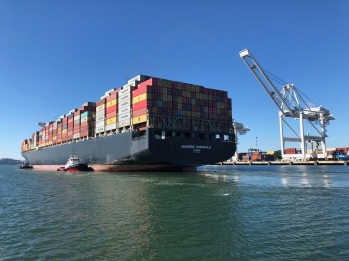
Port of Oakland TraPac Night Gates and Appointments: On October 15, 2018, TraPac commenced trial run for their new night gates program with appointments and $30 gate fee requirement for imports and exports. As necessary with trials, TraPac is acknowledging necessary adjustments before full implementation. Effective October 29, 2018, the $30 Extended Gate Fee (EFG) necessary to pay for night gate services will be effective for Imports (out) only with newly proposed December 3 rd to be effected for Exports (In and Empties out) Appointments.
Attached are FAQs (revised 10/25/18) and Export Process information. Please note the payment method through eModal with fees applying to Imports (Load Out transactions) and Exports (Load In and Empties Out) for ALL SHIFTS (Day and Night Shifts).
Below is communication from TraPac to Oakland Stakeholders:
Although the Extended Gate Fee will still go into effect for gate transactions on or after October 29th, there is a revision to our plan:
- Mandatory LOAD IN (Export) and EMPTY IN appointments will be postponed until Dec 3rd. The ability to make appointments for these transaction types will be enabled on Oct 29th giving the trade 30+ days to practice with the interface. Again, when a trucker arrives at the gate with an export LOAD IN or an EMPTY IN, there will be NO validation of whether an appointment exists until it becomes mandatory on Dec 3rd. However, Extended Gate Fees WILL be assessed and billed to BCOs.
- In addition to credit cards, BCOs may pay by eCheck online.
- For Imports, a payment guaranty will be accepted for approved accounts. If your account is currently approved in eModal for Guaranty payments, “Guaranty” will show as a form of payment when checking out. This will allow import customers up to 10 days from out-gate transaction date to settle payments online.
An updated FAQ is attached. In addition, eModal sent the following broadcast to all truckers and BCOs yesterday that a first round of WEBEX tutorials is scheduled for today and tomorrow:
Best regards,
Brian Bauer
Vice President, Operations
TraPac, LLC - Oakland
2800 7th Street
Oakland, CA 94607
Oakland CES: Since July 16, 2018, CBFANC welcomed PCC Logistics as additional CES facility to Bobac CES/CFS.
Below is updated info for CES Stations:
CENTRALIZED EXAMINATION STATION (Z716)
Bobac CES (Z716) serves Port of Oakland for CBP CES examinations for Trade, CET, CBP Agriculture
Bobac CFS/CES (Z716)
300 A Avenue
Alameda, CA 94501
Office Hours: 8:00 am – 5:00 pm Monday – Friday
CES office telephone: 510-748-3730 x233
CES contracts: linda@bobaccfs.com; ytrejo@bobaccfs.net
www.bobaccfs.net
CENTRALIZED EXAMINATION STATION (Z910)
PCC Logistics serves the Port of Oakland for CES examinations for Trade, CET, CBP Agriculture, and FDA examinations in the heavyweight corridor, and is also CFS
PCC Logistics CFS/CES (Z910)
2498 West 16th Street Building 803, Oakland, CA 94607
Office Hours: 7:00 am – 5:00 pm Monday – Friday
CES office phone number: (510) 663-5000
Cesexams@pcc.cc / 510-663-5000
Melissa@pcc.cc / 510.907.0711 cell
Elva@pcc.cc / 510-844-1455
Also attached is PCC Logistics notice for Third Party dray in/out fees and drayage interchange.
LA/LB PierPass 2.0: Meanwhile at Ports Los Angeles and Long Beach, new PierPass program will commence November 19, 2018. The original Traffic Mitigation Program will transition from Peak period fees to flat fees for both day and night gates. Effective November 19 th, current TMF of $72.09 for 20’ TEU will become $31.52 while rates for other TEUs will be flat fee of $63.04. The revised PierPass seeks to solve the long-debated traffic flows issues caused by original PierPass (2005) and allow flexibility while retaining funding for day and night terminal services. Attached is FAQ for PierPass 2.0
Lessons from WESCCON 2018: Panel discussion on Equipment and Trucking gave current status on state of trucking. Trucking in USA continue to adjust to ELD (Electronic Logging Device) for Hours of Service and, in California, continual environment regulations with clean air mandates and recently restrictions on owners-operators. As most trucking companies will attest, complying with ELD is welcomed and is not the problem. The issues port drayage companies continue to face are terminal turn times and inefficiencies which still challenge drivers daily to meet delivery schedules. Discussions on need for metrics to measure transactions as necessary to mitigate costs and attain reliability will continue to be part of port trucking. Then there is SB1402 which was signed end September 2018 by Governor Brown. SB1402 effectively make every stakeholder connected with trucking services liable for potential state labor and employment law violations. Known as labor-supported legislation to safeguard on “wage-theft”, all users of port drayage services will need to check for trucking companies who failed final judgements from Division of Labor Standards Enforcement. Resource links included below.
http://leginfo.legislature.ca.gov/faces/billNavClient.xhtml?bill_id=201720180SB1402
https://www.dir.ca.gov/DLSE/dlse.html
Inbonds and beyond: Effective August 1, 2018, Inbonds (CF7512) are required to be filed electronically. Simple and straightforward it is not. Major concern is the understanding of whose carrier’s bond is obligated and which carrier is being obligated for closure of the (carrier) bond. Beyond is the understanding of what type of carrier – ocean, air or motor carriers – and specifically a port trucking company making an in-port transfer. And the role Customs Brokers and Forwards have for the completion (closure) of the inbond movement. Ocean Committee has requested and Customs recognizes need for outreach on this concern.
Please stay tuned for upcoming date to attend CBFANC workshop on inbonds, and other ocean port concerns (CES progress, fumigation update, night gates, anyone?) Your suggestions and comments valued at info@cbfanc.org
**Photo Courtesy of Katharina Natividad
U.S. Customs & Border Protection SFO Trade Operations Phone List 10/20/18
U.S. Customs and Border Protection Port of San Francisco
TRADE OPERATIONS
Assistant Port Director Steve Baxter
(510) 271-8960
West Bay Trade
648 West Field Road
San Francisco, CA 94128
| Cargo Desk |
(650) 989-2501 |
|
| Trade |
(650) 989-2507 |
| ATCET |
(650) 989-2508 |
| Agriculture |
(650) 989-2540 |
| Supervisors I Chiefs |
|
| Bladh, Evan |
Chief |
(650) 989-2550 |
| Lew, Frank |
Supervisor Trade |
(650) 989-2512 |
| Mendoza, Arsenio |
Supervisor Agriculture |
(650) 989-2577 |
| Ngan, Nguyen |
Supervisor ATCET |
(650) 989-2563 |
| Pangelinan, Bryan |
Supervisor ATCET |
(650) 989-2561 |
| Vallejo, Hector |
Supervisor Trade |
(650) 989-2552 |
East Bay Trade
2430-C Mariner Square Loop Alameda, CA 94501
Front Desk Agriculture
DAU I Cargo Processing In-Bond
Trade Enforcement
Supervisors I Chiefs
(510) 337-9700 Ext 200
(510) 337-9700 Ext 262
(510) 337-9700 Ext 260
(510) 337-9700 Ext 263
(510) 337-9700 Ext 261
Brown, Felicia Cheng, Alex Chun, Dickins Martin, Willie Sultan, Omar Starr, Gregory Koiner, Wanda
Watch Commander Chief Trade
Chief Agriculture Supervisor Trade Supervisor Agriculture Supervisor Trade Supervisor FedEx
(510) 337-9700 Ext 224
(510) 337-9700 Ext 221
(510) 337-9700 Ext 222
(510) 337-9700 Ext 220
(510) 337-9700 Ext 223
(510) 337-9700 Ext 218
(510) 639-3680
Calling All Interested CBFANC Professional Members - Board of Directors Election
Jack Hubbard, Chairman of the Board 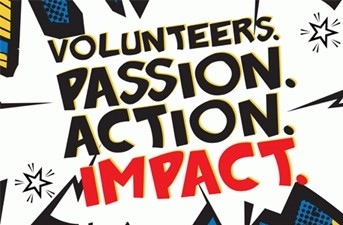 Ever think about being more involved?
Want more than just sitting behind a desk? Ever think about being more involved?
Want more than just sitting behind a desk?
Here’s your chance to be a part of something bigger. Something to make you feel more than a paper pusher. An opportunity to help our industry and have your voice be heard. I’m talking about running for the board of directors of CBFANC. Elections are just around the corner and there will be three open director positions for the 2019-2021 term.
We are in need of new, fresh ideas and input to help the association continue the great work we have done for so many years. Any interested Professional Member should send a short biography about yourself as well as why you would like to run for the board. Please send to: info@cbfanc.org. We would love to add your name to the ballot! If you would like more information on what it means to be on the board, simply send that request to the same email address above and someone from the board will contact you for further discussion.
Ballots will be sent out to all member companies in early November. Each member company is given one vote. With that one vote, they can select up to three of the candidates running for a director spot. Once all of the ballots are received, our executive director will tally up all the votes and the winners will be individually notified. The newly elected directors will be announced in our December issue of Info Expeditor and we’ll also announce the winners at our Annual Meeting/Holiday Happy Hour on December 12th (SAVE the date)!
I encourage all Professional Members to consider running for the board. It’s a great place to share your ideas, make a difference in our port and industry as well as network and develop new friendships. It is truly a worthwhile endeavor!
Jack Hubbard
Chairman of the Board
Trade Wars Explained
Felicia Addison, Newsletter Chair
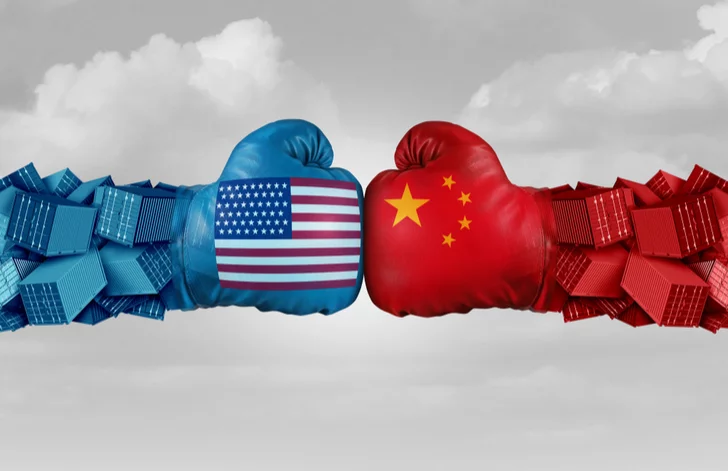
If you've ever wondered how Trade Wars work we've come across an interesting website from Trade Machines that it explains it pretty well.
Trade Wars Explained: The Ultimate Overview - click here to check it out.
39th Annual Steamship Night 2018
Shipco Transport, Inc with their guests enjoying the night at the
39th Annual Steamship Night!
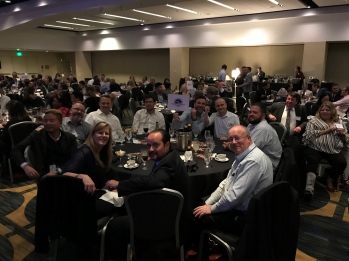
CBFANC Holiday Happy Hour

CBFANC Holiday Happy Hour!
Come Join the Fun at our annual meeting!
Enjoy festive hors d’oeuvres and cocktails!
 When:
When:
Wednesday December 12, 2018
4:30 pm – 8:00 pm
Where:
Hilton San Francisco Airport Bayfront
600 Airport Blvd, Burlingame CA
Tickets:
Members - $35.00
Guests - $45.00
***Bring an Unwrapped Toy to benefit Toys for Tots and get a free raffle ticket***
An Invitation to Sponsor our “Holiday Happy Hour” Event
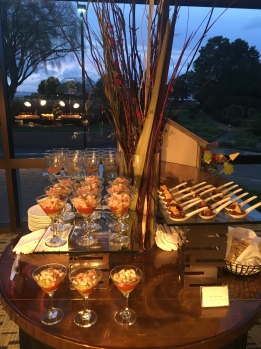 An Invitation to Sponsor our “Holiday Happy Hour” Event An Invitation to Sponsor our “Holiday Happy Hour” Event
December 12, 2018
4:30-8:00pm
Windows on the Bay Room
Hilton San Francisco Airport Bayfront
600 Airport Blvd
Burlingame, CA 94010
The holidays are fast approaching and CBFANC is getting into the Holiday Spirit! We have a fantastic networking event for 2018! This event is fresh and new. A great time to be had by all.
Through your sponsorship, you are supporting an organization that works to benefit its members through continued education and improved service standards. In addition, the association is dedicated to keeping its members current on issues affecting our industry. Sponsor this holiday event and assure your company’s direct exposure to potential new customers by creating a festive positive memory.
Sponsor noteworthy opportunities – Gain recognition with every sip or bite!
$1500 - Food Station Named after your Company –
choose from Beef Sliders, French Fry Bar, Pasta Station, Wings or Street Taco Bar
$1500 - Specialty Holiday cocktail named after your Company –
Choose from Spiked Egg Nog, Rudolph’s Pomegranate Bellini, Holiday Negroni, Santa’s Manhattan, Mrs. Claus Blue Cosmo or create a signature holiday cocktails (extra fee)
$ 500 – Signage
A new fun and exciting way to interact with the attendees, Sponsors are welcomed to participate in our Compliance Networking Hunt for Answers! Cost is only $250 per table that includes 1 free attendee!
As a CBFANC CNHA Sponsor, we will provide you an “exhibitors table” where you’re free to setup promotional items i.e. flyers and marketing materials to educate our attendees about your company! This will give you the opportunity to mingle with our members and guests.
Along with your table, CNHA Sponsors are required to submit a question as part of our Compliance Networking Hunt for Answers. The idea behind the compliance hunt is to have attendees visit your “exhibitor table” and learn more about what your company does. As they pass through, they will collect answers to the sponsor’s questions and be entered to win a raffle prize. I have included a sample question below:
Question: CBFANC is a Bay Area member organization of Brokers and Forwarders banded together to benefit trade and a member of larger organization Pacific Coast Council to advance all stakeholders in the modern global supply chain. Name the other 4 Ports joining CBFANC with a common voice lobbying for the interests of global trade.
- The West Coast Associations who join CBFANC are Ports Seattle, Portland, Los Angeles and San Diego are all member associations of Pacific Coast Council making a difference in Trade Facilitation.
There are other ways to support and be recognized:
- Sponsor – Platinum: Minimum Sponsorship $1500 (includes 2 attendees)
- Sponsor – Diamond: Minimum Sponsorship $1000 (includes 2 attendees)
- Sponsor – Gold : Minimum Sponsorship $750 (includes 1 attendee)
- Sponsor – Silver : Minimum Sponsorship $500
- Sponsor – Bronze : Minimum Sponsorship $250
All sponsorships include exposure on our website and signage at the event.
Do not miss out — secure your spot as a primary sponsor.
Call us at 510-864-2233 or Email to info@cbfanc.org or debbie@thornleypitt.com about any questions.
Thank you for your support!

Save the Date! Annual State of the Port
Tuesday January 29, 2019
Annual State of the Port
Dinner Program
Featuring
CBP Port Director Richard DiNucci
Freight Forwarder Funny
! 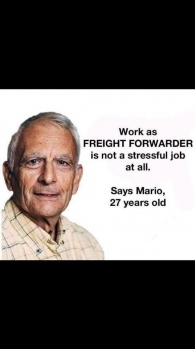 Laughing is good for the soul - enjoy!
Laughing is good for the soul - enjoy! |
 Ever think about being more involved?
Ever think about being more involved?
 An Invitation to Sponsor our “Holiday Happy Hour” Event
An Invitation to Sponsor our “Holiday Happy Hour” Event




